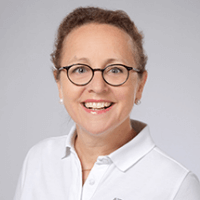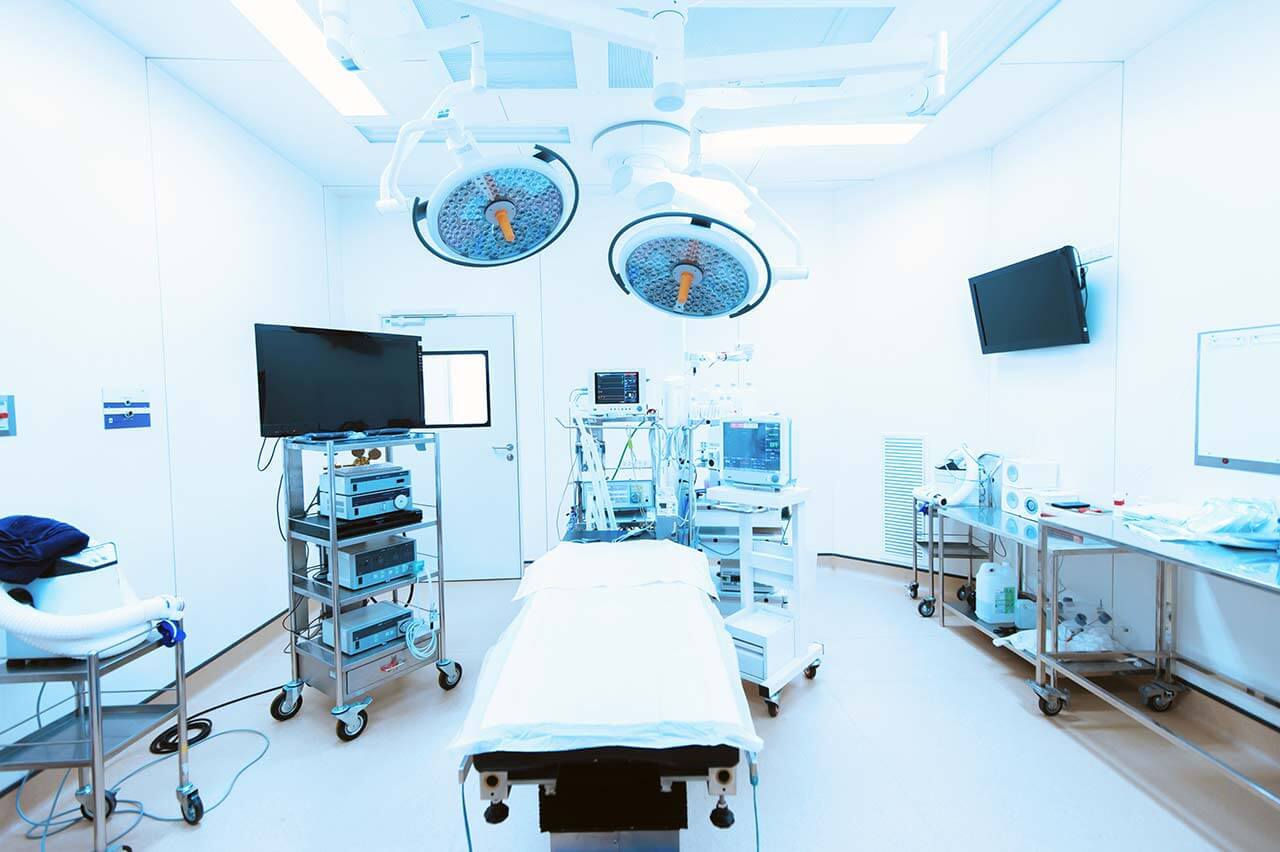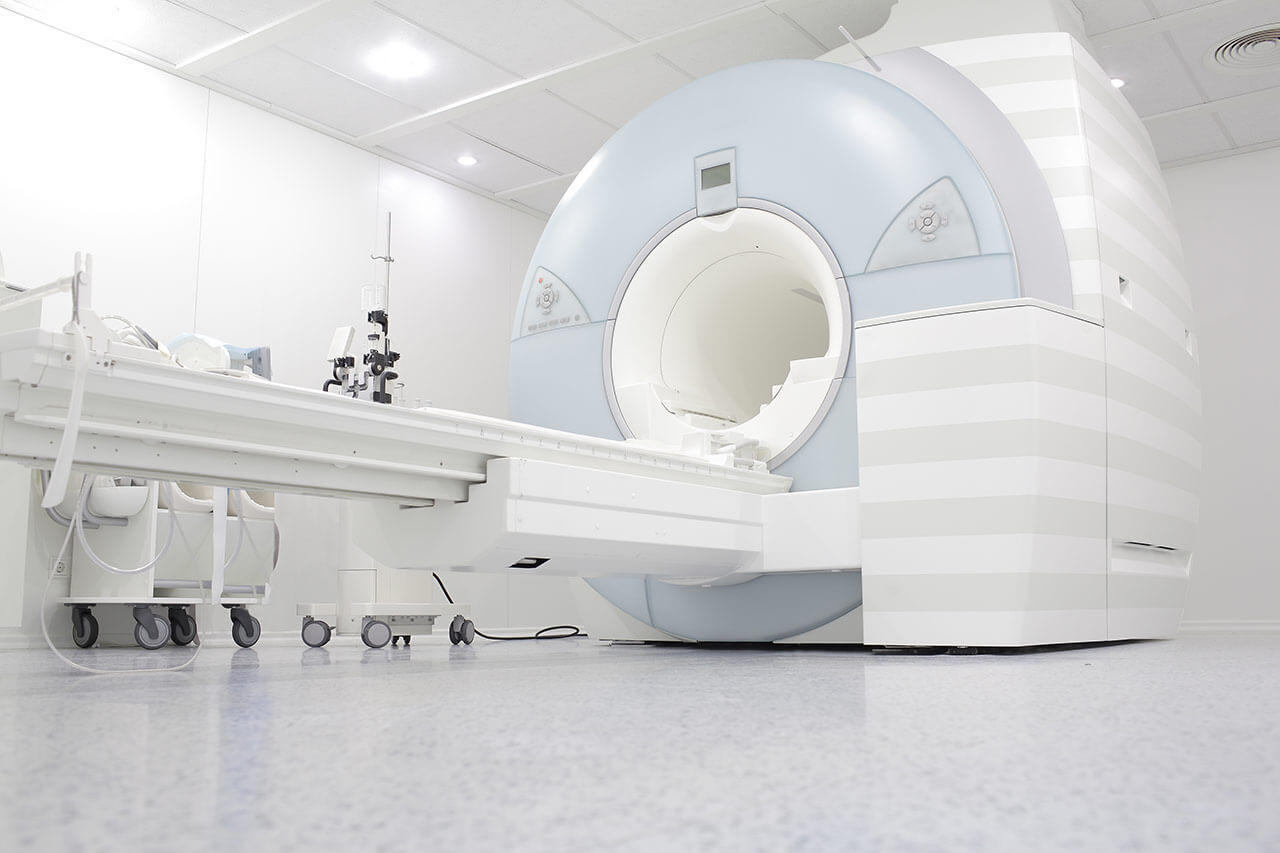
The program includes:
- Initial presentation in the clinic
- clinical history taking
- physical examination
- review of medical records
- laboratory tests:
- complete blood count
- general urine analysis
- biochemical blood analysis
- tumor markers
- indicators of inflammation
- indicators of blood coagulation
- CT/MRI
- ultrasound/ X-ray examination
- conduct endo-sonography of bronchi
- bronchoscopy with biopsy of bronchi and lungs
- histological/ cytological research
- nursing services
- consultation of related specialists
- consultation of the chief physician and all leading experts
- development of individual treatment plan
Required documents
- Medical records
- MRI/CT scan (not older than 3 months)
- Biopsy results (if available)
Service
You may also book:
 BookingHealth Price from:
BookingHealth Price from:
About the department
The Department of Pediatric Pulmonology and Allergology at the ATOS Clinic Heidelberg specializes in the treatment of diseases of the respiratory system and respiratory allergies in children of all ages. The department has excellent modern infrastructure and advanced diagnostic equipment to assess the function of the lungs and other organs of the respiratory system. The department's specialists have at their disposal an in-house laboratory for performing blood tests and allergy tests. The medical team is particularly interested in the diagnosis and treatment of bronchial asthma and allergies. The department's specialists have extensive experience in these areas of medicine. Before starting the diagnosis, the doctors hold individual consultations in the presence of the child and his parents. The specialist is interested in the young patient's complaints, asks questions about previous treatment, and then prescribes the necessary diagnostic measures. As for the treatment, the medical facility offers conservative therapy with medications, inhalations, and other methods. The doctors work strictly according to the current clinical protocols and follow the recommendations of the German Society for Pediatric Pulmonology (GPP) and the German Society for Pediatric Allergology (GPA). The Head Physician of the department is Dr. med. Verena Mandelbaum.
One of the main areas of clinical practice in the department is pulmonary function testing in children. The examination includes impulse oscillometry (a method of assessing airway patency), spirometry (a method of examining external respiration, which allows measuring the volume and speed of airflow), body plethysmography (a method of assessing external respiration), and pharmacological tests to detect bronchial hypersensitivity. The duration of each diagnostic test does not exceed 10-15 minutes. During the examination, children are in a comfortable environment, surrounded by the care of doctors and do not feel any fears.
An integral part of the daily work of the department's team of doctors is conducting tests to identify allergies in a child. Allergy testing is indicated for symptoms such as itching, sneezing, rash, cough, abdominal pain, etc. Depending on the clinical situation, physicians may perform blood tests (for example, a RAST test and an allergen-specific IgE test), skin tests (for example, prick tests, epicutaneous tests, patch tests, and scratch tests), and provocation tests (for example, nasal provocation tests and bronchoprovocation tests). It should be noted that it is important for the doctors in the department that the child does not feel any pain or discomfort during the examination. For this reason, blood is usually taken from a vein using a special patch or a thin needle.
To treat allergies in children, the department's doctors use allergen-specific immunotherapy (ASIT). This method eliminates the cause of the allergy rather than simply relieving the symptoms. ASIT works as follows: doctors periodically inject the child with very small doses of a substance that causes an allergy. This helps the body get used to the allergen and stop reacting to it. Thus, ASIT allows for long-term effects on allergies in children.
In the treatment of pulmonary diseases (acute, obstructive, and chronic bronchitis, pneumonia, pleurisy, bronchial asthma, or chronic obstructive pulmonary disease), the specialists use anti-inflammatory drugs, antitussives, antiseptics, and antibacterial agents. In combination with drug therapy, inhalations, therapeutic heat modalities, electrophoresis, and other procedures are often prescribed.
The department's range of diagnostic and therapeutic services includes the following:
- Diagnostic services
- Pulmonary function testing
- Impulse oscillometry
- Spirometry
- Body plethysmography
- Broncholysis
- Allergy testing
- Blood tests: a RAST test and an allergen-specific IgE test
- Skin tests: prick tests, epicutaneous tests, patch tests, and scratch tests
- Provocation tests: nasal provocation tests and bronchoprovocation tests
- Pulmonary function testing
- Therapeutic services
- Drug therapy
- Inhalations
- Therapeutic heat modalities
- Electrophoresis
- Allergen-specific immunotherapy (ASIT)
- Other diagnostic and treatment methods
Curriculum vitae
Higher Education and Professional Career
- 1981 - 1987 Medical studies, Ruprecht Karl University of Heidelberg.
- 1984 Three-month research fellowship, University of New Mexico Children's Hospital, Albuquerque, New Mexico, USA.
- 1987 Admission to medical practice.
- 1987 Thesis defense, Ruprecht Karl University of Heidelberg.
- 1987 Assistant Physician, Department of Pediatric and Adolescent Medicine, University Hospital Heidelberg; many years of work as the head of the outpatient clinic for pediatric pulmonology and allergology.
- 1997 Board certification in Pediatric and Adolescent Medicine, Medical Association of North Baden, Karlsruhe.
- 2000 Additional qualification in Allergology; foundation of a private specialized clinic for pediatric pulmonology and allergology in Heidelberg.
- 2009 Additional qualification in Pulmonology.
- 2014 Head Physician, Department of Pediatric Pulmonology and Allergology, ATOS Clinic Heidelberg.
Memberships in Professional Societies and Organizations
- European Academy of Allergy and Clinical Immunology (EAACI).
- German Society for Pediatric Pulmonology (GPP).
- German Society for Pediatric Allergology (GPA).
- German Society for Pediatric Intensive Care and Neonatology (DGPIN).
- German Society for Pediatric and Adolescent Medicine (DGKJ).
- Professional Association of Pediatricians in Germany (BVKJ).
- Center for Training Patients with Bronchial Asthma and Neurodermatitis (ZANS).
- Quality assessment organization "Allergology Rhein-Neckar".
Photo of the doctor: (c) ATOS Klinik Heidelberg
About hospital
The ATOS Clinic Heidelberg is a reputable medical complex with high standards of patient care. The clinic was founded in 1991. Since then, it has taken a leading position in the European medical arena in the treatment of diseases of the musculoskeletal system and many other pathologies. The clinic has a highly professional team of doctors, many of whom are world-renowned professors. Specialists work with state-of-the-art equipment. They use classical and innovative treatment methods with high efficiency. Personalized medical care is a priority in the clinic: doctors carefully study each clinical case and develop individual diagnosis and treatment regimens, taking into account each patient's needs and wishes. Patients not only from Germany but also from other countries of the world regularly seek medical help from the clinic, which indicates the outstanding quality of medical services and the high level of trust patients have in the specialists of the ATOS Clinic Heidelberg.
In addition to providing top-notch medical care, the clinic is distinguished by its modern design. When a patient crosses the threshold of the clinic, he or she has the impression that he or she is not in a medical facility but in a luxury hotel. This idea is part of the clinic's working concept because the patient's comfort and psychological state play an important role in achieving successful treatment outcomes. The clinic offers cozy rest areas where patients can distract themselves from the therapeutic process and socialize. It goes without saying that the equipment in the diagnostic, treatment, and operating rooms is of a very high standard, which enables effective and safe treatment.
Patient care is important throughout the therapeutic process. The nursing staff treats each patient's life situation with respect and compassion and surrounds him or her with care. The doctors are focused on the best results, are always open to communication with the patient, and are happy to answer any questions.
More than 96% of patients rate their treatment experience and the quality of medical care at the ATOS Clinic Heidelberg positively.
It should be noted that the clinic is recognized as one of the best in the country in the field of foot surgery, hand surgery, hip, knee, and shoulder surgery, as well as in the field of spine surgery and aesthetic plastic surgery, according to the rating of Focus magazine.
Photo: (с) depositphotos
Accommodation in hospital
Patients rooms
The patients of the ATOS Clinic Heidelberg stay in single and double rooms. The clinic also offers accommodation in enhanced-comfort patient rooms. The patient rooms are made in light colors and modern design to create a comfortable and cozy atmosphere during the patient's stay in the hospital. The standard rooms are equipped with an automatically adjustable bed, a bedside table, a TV, a telephone, and air conditioning. The rooms have Wi-Fi access. Enhanced-comfort patient rooms are additionally equipped with upholstered furniture, a safe, and a mini-bar.
Meals and Menus
The clinic offers delicious and varied meals three times a day: breakfast is served as a buffet, lunch offers a choice of three set menus, and dinner also offers a choice of several set menus. The menu is mainly European cuisine. If, for some reason, you cannot eat all the foods on the menu, you will be offered an individual menu. Please inform the medical staff about your dietary preferences prior to the treatment.
The clinic also has a cozy cafe with a wide range of hot and cold drinks, cakes, snacks, sandwiches, salads, and hot dishes.
Further details
Standard rooms include:
![]() Toilet
Toilet
![]() Shower
Shower
![]() Wi-Fi
Wi-Fi
![]() TV
TV
Accompanying person
Your accompanying person may stay with you in your patient room or at the hotel of your choice during the inpatient program.
Hotel
You may stay at the hotel of your choice during the outpatient program. Our managers will support you for selecting the best option.




